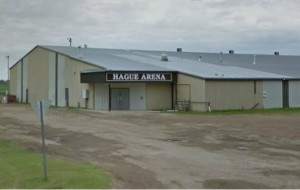With Zach Parise and Ryan Suter now both securely in Minnesota, the number of quality free agents dwindles significantly as teams look to engage their Plan B efforts to improve their rosters and move on after losing out on Parise and Suter. However, with talks currently ongoing for the new collective bargaining agreement, many teams may hold off on their Plan B until the dust settles on the new agreement.
A new collective bargaining agreement between the NHL and the Players Association could produce several cap casualties who have to be traded or bought out. One of the many possible outcomes of the new collective bargaining agreement could see a lowered salary cap from where it currently sits at $70.2 million. If the cap decreases, many teams will be forced to trade away salary or possible buy out players with higher cap hits in order to become cap compliant.
Take, for instance, the Boston Bruins. The Bruins haven’t been very active in free agency thus far, and that could mostly be due to the fact that they have less than $300,000 available in cap space. If the salary cap lowers by even $5 million in the new collective bargaining agreement, the Bruins would need to dump salary quickly. For the Bruins, that may just involve moving goalie Tim Thomas or suspending his salary if he does in fact take next season off. However, the fix may not be so easy for some teams.
The Minnesota Wild were the big winners in free agency this week when it was announced they both Parise and Suter had agreed to terms with the Wild. However, absorbing both of those players put the Wild $1.3 million away from the salary cap ceiling. A lowered salary cap for next season could put Minnesota in a very vulnerable spot where they may need to undo some of the forward strides they have made recently. Parise and Suter would certainly be untouchable, but how about other players like Dany Heatley, who has a $7.5 million cap hit, or Devin Setoguchi?
At least 10 teams currently possess less than $10 million in salary cap space. The NHL and NHLPA remain tight-lipped about the issues being discussed at recent meetings regarding the new CBA, but if the new agreement does, in fact, harbor a lower salary cap, several of these teams could be forced to unload players. Many general managers’ who missed out on key free agents like Parise, Suter, Matt Carle, Jiri Hudler, Jaromir Jagr, and others, could opt to wait until the new CBA is hammered out before instigating Plan B to fill holes in their rosters.
The Detroit Red Wings are one such team who could bide their time before making drastic decisions. The Wings pushed hard for Ryan Suter to help replace Nicklas Lidstrom, who retired earlier this summer. The Wings missed out on Suter and Matt Carle, another defensive option to help bolster their blue line. The remaining free agent options are thin for the Wings, which could lead to the team attempting to trade for defensive help. This could come at a high price, however, with teams knowing how desperate the Wings are for defenseman, prompting teams to up the asking price for their players. If the Wings aren’t willing to part with the assets in a trade, they may simply wait to see what the new collective bargaining agreement brings and pounce on cap casualties when the time arises. Pittsburgh, Carolina, Washington and the New York Rangers could also look to employ similar efforts later this summer.
Again, both the NHL and NHLPA are staying mum on the new CBA discussions, so it’s tough to say what the outcome will be and what could happen to the salary cap for next season. But if the cap lowers and teams who overspent are forced to trade away players and dump salary, expect teams with cap space to jump on the cap casualties to help bolster their rosters after missing out on key free agents this summer.
Until then, with only a handful of decent free agents remaining, general managers could wait until details of the new CBA are hammered out before implementing their Plan B strategies.


